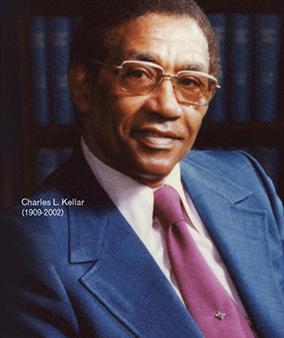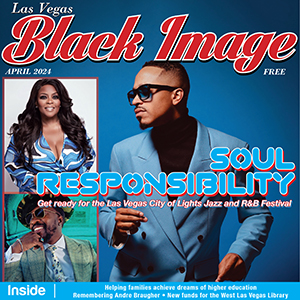HISTORIC BLACK VEGAS | Charles Kellar and the 1971 Consent Decree
April 7, 2021 by agutting@reviewjournal.com
Filed under Community
Charles Kellar and the 1971 Consent Decree
A consent decree is an order issued by a court that expresses a voluntary agreement by the participants in a lawsuit. In 1971, a consent decree alleged a series of violations of Title VII of the Civil Rights Act of 1964. Strip hotels and labor unions signed it — stipulating that 12% of certain job categories would be open to Blacks.
Prior to this action, Black workers, except in a few instances, were relegated to jobs in the back-of-the-house as porters, maids, and linen room workers. (These porter positions were those who cleaned casino/hotel public areas, not those who earned good tips for transporting luggage to guest rooms.) On March 26, 1960, hotels were integrated but jobs that were discussed in the oral Moulin Rouge Agreement never materialized.
Charles Kellar, the first Black attorney to sit for Nevada’s state’s bar exam, initiated the original design of the decree. Kellar moved to Nevada in 1959, sat for the exam in 1960, and received his license to practice law in Nevada in 1965. Why so long? Kellar’s almost perfect passing score drew unfavorable attention from the State Bar of Nevada and a decision was made to withhold his license. After a lengthy court challenge, Kellar received his license. During this time period, however, Robert Reid and Earle White passed the Nevada Bar and were licensed.
This was the second time in about a 12-month period that Kellar had drawn unfavorable attention to himself. The first time was when he opened a bank account soon after his arrival. He had sold real estate properties before leaving New York and had arrived in Las Vegas with a cashier’s check for just under $300,000. The banker called the police and when the situation was explained that “No Black man should have that kind of money,” Kellar embarrassed the officers with his laughter.
But while Kellar fought for his license, fortunately for Las Vegas, he volunteered in the offices of the local NAACP and for the Reno NAACP. Thus, he knew the systemically racist landscape well and stepped in to help remedy the lack of jobs in the Black community as soon as the opportunity arose. Then he worked on the issues of school desegregation and housing.
Plaintiffs that signed the consent decree agreeing to make 12% of jobs — in a number of categories — open to Blacks included the Nevada Resort Association, Aladdin Hotel, Castaways Hotel, Caesars Palace, Desert Inn Hotel and Country Club, Dunes Hotel and Country Club, Flamingo Hotel, Frontier Hotel, Hacienda Hotel, International Hotel, Landmark Hotel, Silver Slipper, Thunderbird Hotel, and the Tropicana Hotel. Labor Unions that signed the consent decree consisted of the Local Union 995, Professional Clerical; Ground Maintenance, Parking Lot Attendants, Car Rental Employees, Warehousemen and Helpers; Local Union 720, International Alliance of Theatrical Stage Employees and Moving Picture Machine Operators of the United States and Canada; Culinary Workers Union Local 226, and Bartenders Union Local 165.
The hotels and unions promised “to hire and assign applicants for employment, and shall promote, transfer, train, demote and dismiss employees without regard to race and without engaging in any act or practice which has the purpose or the effect of discriminating against any individual because of his race or color in regards to his employment opportunities, and shall promote and transfer employees in such a way as to provide employment opportunities to black persons which are equal to those provided to white persons.”
The decree demanded the implementation of a program and procedures by the Resort Association, hotels, and unions within 30 days. Plans included the notification of the NAACP, the Concentrated Employment Program (a program of the Economic Opportunity Board), and the State Employment Security Department. The NAACP branch administration felt comfortable that as long as they were vigilant, the resorts would continue to comply with the mandate. After a number of years, they weren’t and the resorts didn’t.








